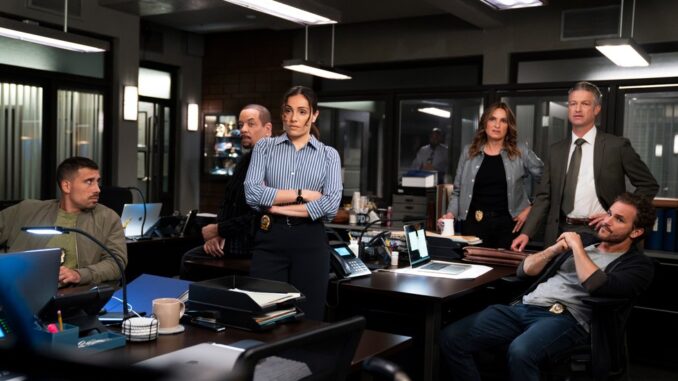
The Thin Blue Line and the Blurred Lines: A Dichotomy Between Law and Order and Law & Order: SVU
For over three decades, the "dun-dun" has resonated through television sets, heralding the arrival of a procedural drama that has become a cultural touchstone. The "Law & Order" franchise, conceived by Dick Wolf, has spawned numerous iterations, but none have been as enduring and impactful as the original "Law & Order" and its first spin-off, "Law & Order: Special Victims Unit" (SVU). While both operate under the same core framework – a two-pronged approach that chronicles police investigation followed by courtroom proceedings – they diverge in their thematic focus, character development, and ultimately, their reflections on the American justice system. The difference lies not merely in the type of crime, but in the lens through which those crimes are viewed.
The original "Law & Order" can be described as a meticulously crafted machine. Each episode is a carefully calibrated equation, balancing the gritty realities of police work with the intellectual sparring of legal arguments. The crimes are varied, often reflecting societal anxieties – corporate malfeasance, political corruption, and accidental tragedies all find their way onto the docket. The focus, however, remains primarily on the process. The detectives, notably the rotating duos of Briscoe and Logan, Green and Fontana, are largely archetypes: the seasoned veteran, the street-smart newcomer, the intellectual and the everyman. Their personal lives are largely unexplored, their motivations remaining rooted in a dedication to upholding the law. In the courtroom, the district attorneys – Adam Schiff, Jack McCoy, and others – embody the ethical dilemmas inherent in the pursuit of justice. They grapple with the grey areas, navigating the pressures of public opinion, political maneuvering, and the occasional legal loophole. The emphasis is on the system, its flaws and its strengths, and the pursuit of a verdict, regardless of the human cost.
"Law & Order: SVU," on the other hand, plunges into the murky depths of sexually based offenses. The premise inherently demands a more intimate and emotionally charged approach. While the procedural elements remain, the focus shifts from the crime itself to the victims, the perpetrators, and the psychological toll that these offenses exact on all involved. Detectives Olivia Benson and Elliot Stabler, the iconic core of the series, are far more developed characters. We witness their personal struggles, their unwavering empathy for survivors, and the cumulative weight of the darkness they confront on a daily basis. Their partnership is built on a deep understanding, a fierce loyalty, and a shared commitment to protecting the vulnerable. This level of character investment is further amplified by the focus on the complexities of trauma, the challenges of navigating the legal system for victims, and the exploration of themes like consent, power dynamics, and societal attitudes towards sexual violence.
The courtroom in "SVU" becomes a stage for challenging societal norms and confronting uncomfortable truths. The prosecutors, often grappling with the emotional nature of the cases, must navigate the intricacies of victim testimony, the skepticism of juries, and the biases that often permeate discussions of sexual assault. The courtroom scenes are less about abstract legal theory and more about the lived experiences of survivors, the fight for their voices to be heard, and the struggle for justice in a system that often fails them.
In essence, the two shows represent different facets of the criminal justice system. "Law & Order" holds a mirror to the broad landscape of crime and its impact on society, focusing on the mechanics of investigation and prosecution. It presents a relatively detached, almost clinical, examination of the law in action. "Law & Order: SVU," however, acts as a magnifying glass, focusing on a specific category of crime and delving into the personal and emotional ramifications. It forces viewers to confront uncomfortable truths about violence, vulnerability, and the ongoing struggle for justice within a system that often struggles to adapt to the complexities of human experience.
Ultimately, both "Law & Order" and "Law & Order: SVU" have captivated audiences for their insightful portrayals of the legal process and the human drama that unfolds within its confines. However, their lasting appeal stems from their ability to tap into distinct aspects of the human condition. One highlights the systemic flaws and the enduring pursuit of objective truth, while the other illuminates the shadowed corners of human behavior and the unwavering fight for empathy, understanding, and justice for the most vulnerable members of society. The "dun-dun" may sound the same, but the echoes resonate with different, equally powerful, truths.
